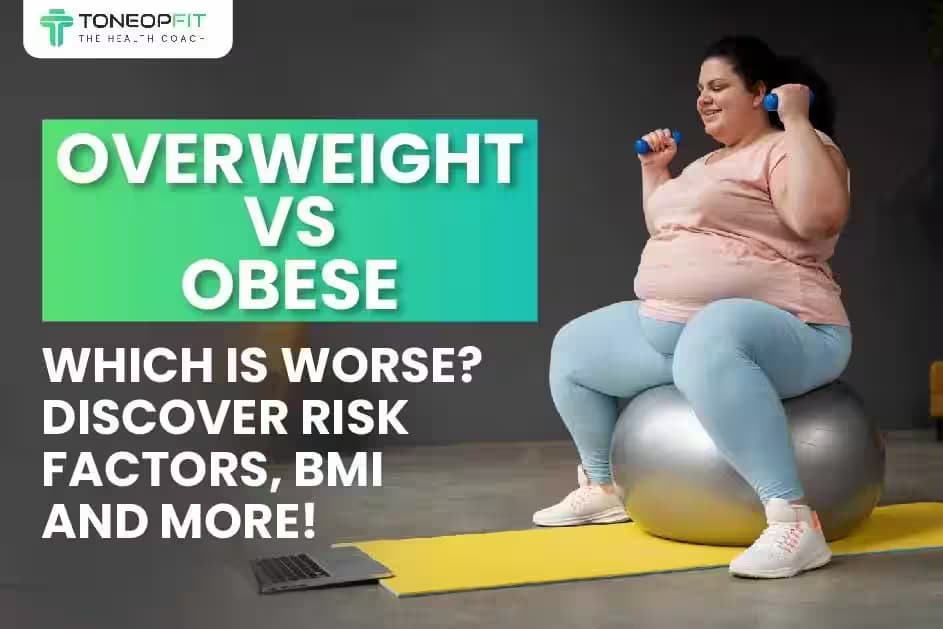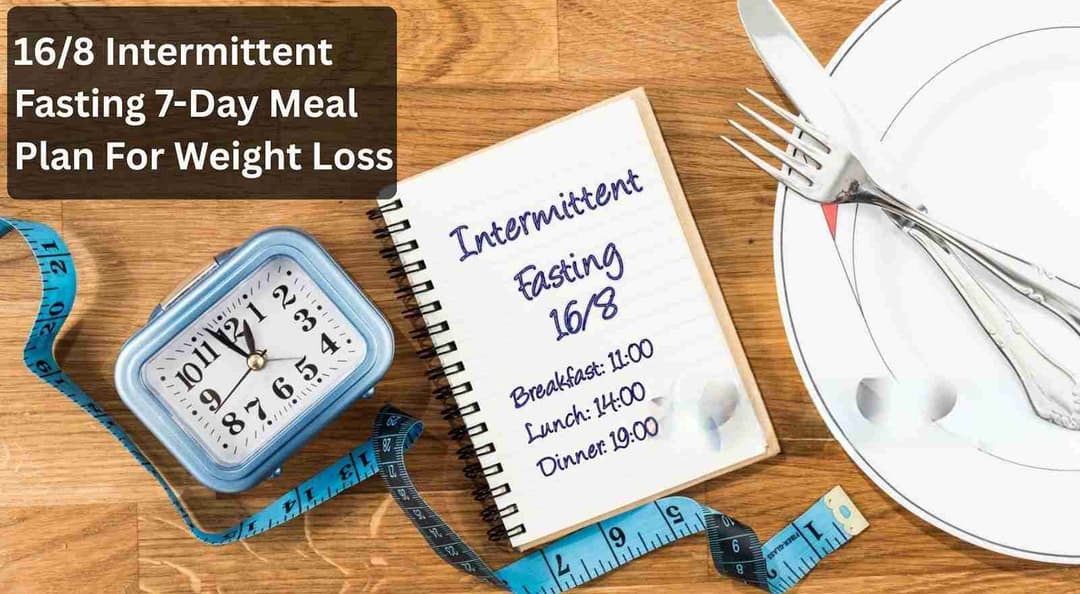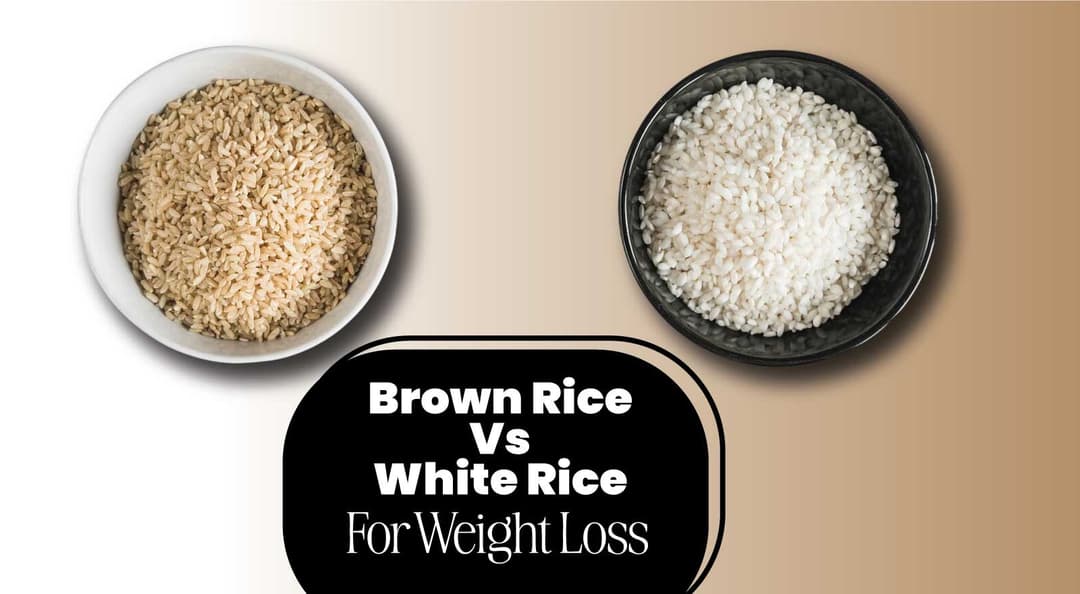Do you know the difference between being overweight and obese? These are not the same, despite how frequently people use the names synonymously. It’s a good idea to dig more into these topics, whether you are worried about obesity or just curious about what it takes to lose weight.
Overweight and obesity are common conditions that affect people around the world. In fact, these conditions have nearly tripled worldwide since 1975. Overweight and obesity occur when you have excess fat that poses a risk to your overall health. While both conditions come with serious health consequences, your risk of complications generally increases as you develop more adipose tissue or body fat.
This guide cuts through the confusion, unpacking the difference between overweight and obesity. We'll delve into the science behind Body Mass Index (BMI), explore the associated health risks, and shed light on the factors that contribute to weight gain. Keep reading!
Table Of Contents
- What Is Overweight And Obesity?
- How Much Overweight Is Obese?
- What Is The Difference Between Overweight And Obese?
- What Are Obesity Risk Factors?
- Is Being Overweight Worse Than Being Obese?
- Dietitian’s Recommendation
- The Final Say
- FAQs
- References
What Is Overweight And Obesity?
Overweight vs obese both are common conditions that are defined as the increase in the size and amount of fat cells in your body. Overweight vs obese are generally caused by several factors such as eating patterns, lack of enough sleep or some medicines, like genetics and family history.
Being overweight means your body mass index or BMI, is higher than normal.
Obesity is a chronic health-related condition that raises the risk of several heart-related diseases, which is the leading cause of death, and it has been linked to several other health-related problems, such as type 2 diabetes and cancer.
Nearly 1 in 5 children and teens ages 2 to 19 years have been diagnosed with obesity. Being overweight vs obese leads to many serious health-related issues for people of all ages.
Healthcare professionals use body mass index (BMI) to screen for overweight and obesity.BMI is the measure of your body fat in accordance with your height and weight and is often termed as the body mass (in kilograms), which is then divided by the square of your body height (in meters) and is expressed in units of kg/m². Unhealthy lifestyle habits, like not performing any physical activity and binging on high-calorie, low-nutrient foods and beverages, raise your risk of getting overweight and obese.
How Much Overweight Is Obese?

Healthcare professionals refer to body mass index (BMI) to identify overweight and obesity in adults. BMI is simply a person's weight in kg divided by the square of an individual's height in meters.
A high BMI may mean you have more body fat. If your BMI shows that you are overweight for your height, your doctor may discuss overweight and obesity. However, there is more to obesity than BMI.
To calculate your BMI, see the adult BMI calculator or determine your BMI by finding your height and weight in this BMI chart.
- If your BMI is below 18.5, you fall into the underweight range
- If your BMI is 18.5 to <25, you are in the healthy weight range
- If your BMI is 25.0 to <30, you are in the overweight range
- If your BMI is 30.0 or higher, you are in the obese range
Obesity is often divided into categories:
- Class 1: BMI 30 to < 35
- Class 2: BMI 35 to < 40
- Class 3: BMI 40 or higher
What Is The Difference Between Overweight And Obese?
The difference between obesity and overweight is determined by the body mass index or the structure of the human body. Weight, height and age are determined based on body mass index. In general, people with a body mass index (BMI) of 25 to 29.9 are said to be overweight, and those with a body mass index (BMI) of 30 or more are said to be obese.
BMI determines the difference between overweight and obesity. Note the following table, which presents the representation of overweight vs obese:
Aspect | Overweight | Obese |
| Definition | Excess body weight relative to height, BMI (Body Mass Index) between 25 and 29.9. | Excess body weight relative to height, BMI (Body Mass Index) of 30 or higher. |
| BMI Range | BMI 25 - 29.9 | BMI ≥ 30 |
| Health Risks | Increased risk of certain health conditions such as type 2 diabetes, heart disease, and high blood pressure. | Higher risk of serious health conditions, including type 2 diabetes, heart disease, stroke, high blood pressure, certain cancers, and more. |
| Severity | Generally considered less severe than obesity. | Generally considered more severe than overweight. |
| Treatment | Focus on lifestyle changes such as diet and exercise to achieve a healthier weight. | It requires more intensive lifestyle interventions, potentially including medical treatment, diet modification, exercise programs, and, in some cases, surgery. |
| Classification | Often considered a precursor to obesity. | Represents a more advanced stage of excess weight. |
What Are Obesity Risk Factors?
Some major factors that lead to obesity are mentioned below:
| Risk Factor | Explanation |
| Genetics |
|
| Calorie |
|
| Dietary reason |
|
| Lack of physical activity |
|
| Medical health reasons |
|
Is Being Overweight Worse Than Being Obese?
Overweight and obesity are two classifications of body mass index (BMI). In terms of health risks, being overweight is generally not considered worse than being obese.
While both conditions carry an increased risk of various health problems, such as type 2 diabetes, heart disease, and certain cancers, obesity is typically associated with more severe health consequences due to the greater amount of excess body fat. However, the specific health risks vary depending on factors like overall health, lifestyle, and genetics.
Both overweight and obesity can benefit from lifestyle changes such as improved diet and increased physical activity. Individuals with either condition need to work with healthcare professionals to manage their weight and reduce associated health risks effectively.
Dietitian's Recommendation
Whether you are overweight or obese in both conditions, you need to make dietary changes to lose weight. Some people may benefit from reducing portion sizes or snacking between meals. Others may need to change what they eat rather than how much. Eating more plants can benefit almost everyone. Fruits, vegetables, whole grains and legumes are lower in fat and higher in fibre and micronutrients. They are more nutritious and will make you feel fuller and more satisfied even though you consume fewer calories.
— Dietitian Lavina Chauhan
The Final Say
The battle of overweight vs obese isn't something that should be framed as a competition; rather, it's about understanding individual health risks and addressing them effectively.
Overweight and obesity are prevalent conditions, and although slightly different, they result in many of the same health complications, such as increased risk of heart disease, type 2 diabetes, cancer, and chronic pain.
Several factors can cause you to be overweight or obese, from lifestyle to underlying health conditions. However, some treatment options, such as eating better, exercising more, and taking medications, can help you control your condition and reach your goal weight. So, focus on lifestyle changes, promote body positivity, and encourage healthy habits, and you can work towards improving the health outcomes and quality of life at all points along the weight spectrum.
FAQs
1. Is there a difference between being overweight and BMI of obese?
Yes, there is a difference between being overweight and having a BMI classified as obese. If a person's BMI falls between 25 and 29.9, they are classified as overweight. On the other hand, if their BMI is 30 or higher, they are classified as obese.
2. Explain obesity and overweight differences?
Overweight refers to having excess body weight relative to height, typically with a BMI between 25 and 29.9, whereas obesity indicates a higher level of excess weight, with a BMI of 30 or above, carrying greater health risks such as heart disease and type 2 diabetes.
3. What is the normal vs overweight vs obese BMI range?
If your Body Mass Index is 18.5 to <25, it is a healthy weight range. If your BMI is 25.0 to <30, then it is termed as overweight range. Also, if your BMI is 30.0 or higher, it falls in the obesity range.
4. What is overweight vs obese body fat percentage?
Women with more than 30 per cent body fat, whereas men with more than 25 per cent body fat are said to be obese. Morbid obesity is often defined as having a BMI of more than 40, which equates to approximately 100 pounds overweight for men and 80 pounds for women.
5. What are overweight vs obese health risks?
Risk factors of obesity and overweight lead to various health-related consequences like cardiovascular disease, type 2 diabetes, musculoskeletal disorders such as osteoarthritis, and certain types of cancers like endometrial, breast and colon. Risk factors of obesity.
6. What is the difference between overweight vs obese?
Being overweight is a condition of excessive fat deposits. Whereas, obesity is a chronic complex disease defined by excessive fat deposits that can impair health. Obesity can lead to an increased risk of type 2 diabetes and heart disease, it can affect bone health and reproduction, and it increases the risk of certain cancers.
References
- Health Risks of Overweight & Obesity - NIDDK
- Obesity
- Defining Adult Overweight & Obesity
- What Are Overweight and Obesity? | NHLBI, NIH
About ToneOp
ToneOp is a platform dedicated to improving and maintaining good health through a comprehensive range of goal-oriented health plans with up to 3 Coach support. With a range of Weight Management, Medical Condition, Detox Plans, and Face Yoga Plans, the app also provides premium health trackers, recipes and health content. Get customised diet, fitness, naturopathy & yoga plans and transform yourself with ToneOp.










































